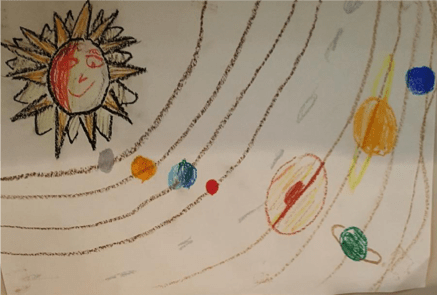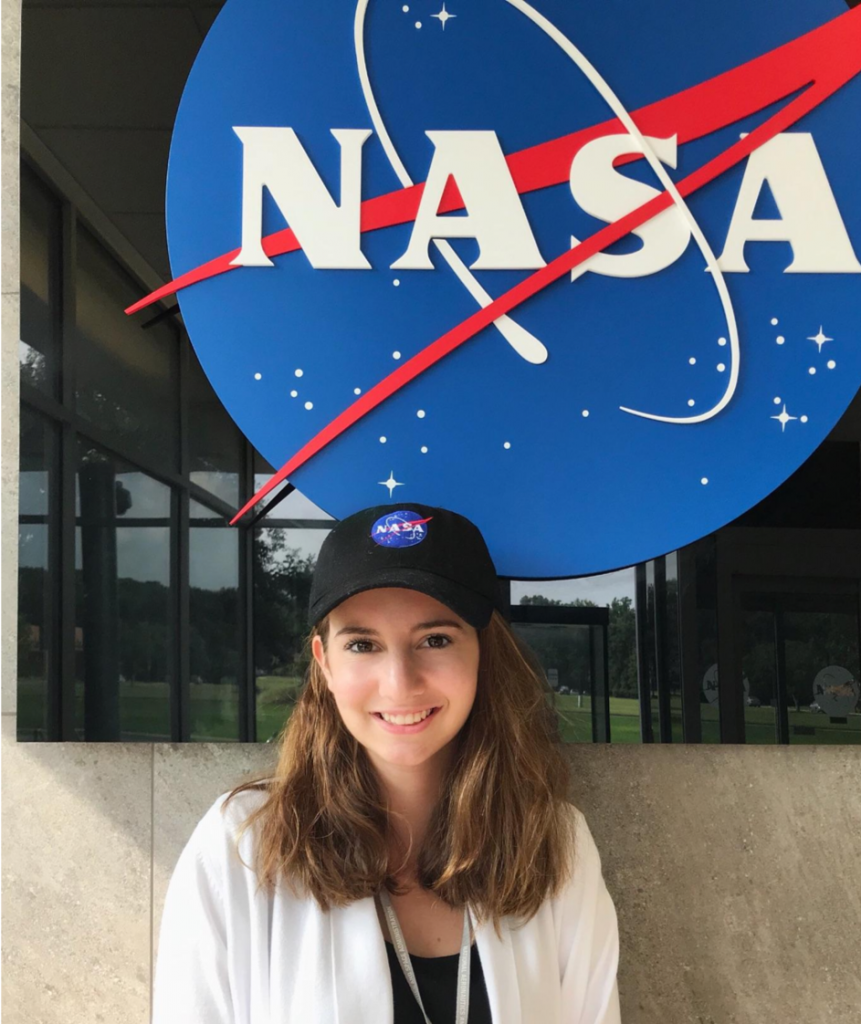
I’ve always dreamed of becoming an astronaut. As a kid, I loved to make crayon drawings of the solar system. My pictures always had to be accurate: I never forgot the asteroid belt, Uranus’ tilted rings, and Jupiter’s Great Red Spot. I loved the thought of a huge, mysterious universe — to be honest, I still do.
But if I’m being really honest, the process of becoming a bona fide space cadet isn’t a journey that I was ever prepared for or even willing to take. I’m very nearsighted. I have a largely unacknowledged fear of heights. I don’t want to major in engineering, hard science, or math. I also can’t do a pull-up.
I still fantasize, though, about seeing spaceship Earth hanging alone against a backdrop of a darkness punctured delicately by stars. I wonder about what it would be like to let Martian dust slip through the fingers of my spacesuit glove. I think about leaving my footprints on the Moon.
Over a decade after I stopped using crayons, 16-year-old Tamsyn got a position working in the Zukin lab at the Albert Einstein College of Medicine in the Bronx, NY. As part of a high school class, I’d complete a short-term experiment under the supervision of professional scientists and write a brief paper about it. Over the course of a summer, I removed mouse hippocampi and conducted Western blot analyses on those tiny slivers of brain tissue. What I found to be the best part of the entire experience, though, was writing about the cellular mechanisms behind neuronal death as a result of stroke. I wanted to advance the field (if ever so slightly), but more importantly, the public deserved to know the work being done to ultimately benefit humans.
My passion for science is only outdone by my urge to tell people about it. During my crayon solar system era, I used to proudly recite the names of the planets (going in order from closest to farthest from the Sun and defiantly including Pluto even past its demotion) to anyone who would listen. In the first weeks of my junior year of high school, I worked diligently on my neuroscience paper in the hopes that it’d resonate with my classmates. The next summer I worked again at a lab — the Jackson Laboratory in Bar Harbor, Maine — but now my job was to write about science full-time for the lab’s website. I was thrilled to reach a much larger audience than my classmates. By my senior year of high school, I knew what I wanted to do.

I’m a rising junior at the University of Pennsylvania majoring in Science, Technology, and Society. I know that STS as a course of study sounds pretty vague, but I’m using that to my advantage: I can craft my specific focus as a writer by choosing classes where I could practice communicating science in an educational setting. I can tell you about the scientific legacy of Charles Darwin’s theory of natural selection — if you genuinely want to hear about the potential Lamarckism of epigenetics and whether genes really are “selfish.” I could talk for hours about detecting biosignatures on exoplanets and what to do once we’ve found them. At school and outside, my encounters with science taught me intellectual fearlessness and a desire to question. When science is communicated, society can absorb the information and advance.
I look forward to focusing my future more specifically toward communicating the astronomy I’ve always loved, and at NASA Goddard, I can do exactly that. The opportunity to interview the very people behind cutting-edge space science is an enormous privilege. Writing about the Lunar Reconnaissance Orbiter brings me to the Moon (where I hope to see humankind walk in my lifetime, even if I can’t). I’ll visit Jupiter’s Trojan Asteroids as I research the 2021 Lucy mission. I can soar past the boundaries of the solar system interviewing scientists specializing in exoplanets. Though being an astronaut may not be my calling, science storytelling is.
To learn more about NASA Internships, please visit intern.nasa.gov. Start your journey today! #NASAinterns
